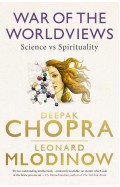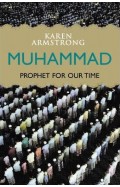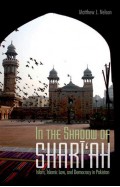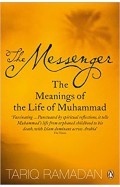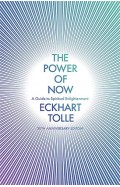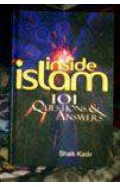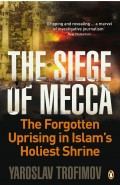The Wisdom of the Throne: Al Hikmat Al Arshiya -
By: James Winston Morris
-
Rs 765.00
- Rs 900.00
- 15%
You save Rs 135.00.
Due to constant currency fluctuation, prices are subject to change with or without notice.
THE WISDOM OF THE THRONE Al-Hikmat al-‘Arshiya by Mulla Sadra) An Introduction to the Philosophy of Mulla Sadra
(Sadr al-Dīn al-Shirāzī)
Dr. Fazlur Rahman
This is one of the pioneering works on the life and works of Sadr al-Dīn Shirāzī (1572-1640), one of the greatest Islamic sages and philosophers, and marks the dawn of a wider perspective on Islamic philosophy; a perspective that corrects the classical view held in the West that Islamic philosophy constituted a passing phenomenon and was merely a bridge between the late antiquity and the Latin High Middle ages. It provides a scholarly and serious introduction of Mulla Sadra against the backdrop of the rich Islamic philosophic tradition; presents his essential teachings in a contemporary idiom; aims at a critical and analytical statement of his philosophy primarily contained in his monumental work Al-Asfār al-Arba‘a and shows that Sadra’s system, despite certain inner difficulties, is a highly original one revealing the extraordinary intellectual calibre of its author. The present work will further stimulate sorely needed philosophic research into this hitherto little explored but rich field of Islamic thought.
In thirteen densely written chapters the books covers all the fundamental issues of Ontology, Theology, Psychology and Eschatology (Man and his Destiny) as elucidated by Mulla Sadra in his magnum opus.
| Book | |
| What's in the Box? | 1 x The Wisdom of the Throne: Al Hikmat Al Arshiya - |
THE WISDOM OF THE THRONE Al-Hikmat al-‘Arshiya by Mulla Sadra) An Introduction to the Philosophy of Mulla Sadra
(Sadr al-Dīn al-Shirāzī)
Dr. Fazlur Rahman
This is one of the pioneering works on the life and works of Sadr al-Dīn Shirāzī (1572-1640), one of the greatest Islamic sages and philosophers, and marks the dawn of a wider perspective on Islamic philosophy; a perspective that corrects the classical view held in the West that Islamic philosophy constituted a passing phenomenon and was merely a bridge between the late antiquity and the Latin High Middle ages. It provides a scholarly and serious introduction of Mulla Sadra against the backdrop of the rich Islamic philosophic tradition; presents his essential teachings in a contemporary idiom; aims at a critical and analytical statement of his philosophy primarily contained in his monumental work Al-Asfār al-Arba‘a and shows that Sadra’s system, despite certain inner difficulties, is a highly original one revealing the extraordinary intellectual calibre of its author. The present work will further stimulate sorely needed philosophic research into this hitherto little explored but rich field of Islamic thought.
In thirteen densely written chapters the books covers all the fundamental issues of Ontology, Theology, Psychology and Eschatology (Man and his Destiny) as elucidated by Mulla Sadra in his magnum opus.
The Wisdom of the Throne: Al Hikmat Al Arshiya -
By: James Winston Morris
Rs 765.00 Rs 900.00 Ex Tax :Rs 765.00
Zubin Mehta: A Musical Journey (An Authorized Biography)
By: VOID - Bakhtiar K. Dadabhoy
Rs 892.50 Rs 1,050.00 Ex Tax :Rs 892.50
The Quest For Meaning: Developing A Philosophy Of Pluralism
By: Tariq Ramadan
Rs 1,185.75 Rs 1,395.00 Ex Tax :Rs 1,185.75
War of the Worldviews: Science vs Spirituality
By: Dr Deepak Chopra
Rs 797.50 Rs 1,595.00 Ex Tax :Rs 797.50
In the Shadow of Shari'ah: Islam, Islamic Law and Democracy in Pakistan
By: Matthew J Nelson
Rs 2,347.50 Rs 4,695.00 Ex Tax :Rs 2,347.50
The Messenger: The Meanings of the Life of Muhammad
By: Tariq Ramadan
Rs 2,236.00 Rs 2,795.00 Ex Tax :Rs 2,236.00
Zubin Mehta: A Musical Journey (An Authorized Biography)
By: VOID - Bakhtiar K. Dadabhoy
Rs 892.50 Rs 1,050.00 Ex Tax :Rs 892.50
The Wisdom of the Throne: Al Hikmat Al Arshiya -
By: James Winston Morris
Rs 765.00 Rs 900.00 Ex Tax :Rs 765.00














-120x187.jpg?q6)









